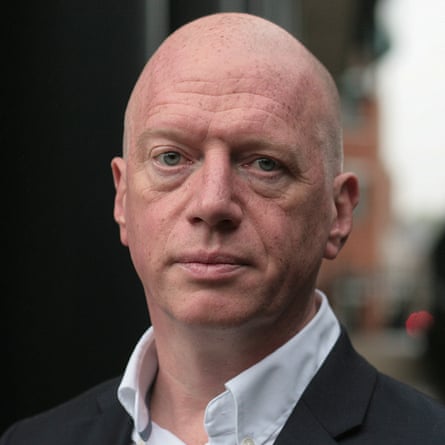Members of the first fire crews to attend Grenfell Tower have expressed frustration at the time it took to send backup engines, a delay that hampered their ability to evacuate more people, the head of the Fire Brigades Union has said.
Matt Wrack, who has spoken to between 25 and 30 of the firefighters who attended the blaze, said tthe delay may have been worsened by closures of local fire stations. He said some of the firefighters had asked the union to highlight concerns about the time they had to wait for the second wave of firefighters during the crucial early stages, as they struggled to evacuate residents.
“There was frustration among some of the first firefighters who arrived that more people were not mobilised more quickly,” Wrack said.
Cuts to firefighter numbers and a decades-long process of fire safety deregulation should be a key part of the public inquiry into the disaster, Wrack said, but the initial list of questions the inquiry sets out to answer did not explicitly address either issue. Wrack said the union would boycott the whole inquiry if members felt these crucial issues were not being addressed.
The union would like the inquiry to look at the impact of the closure of Knightsbridge fire station in 2014, and the removal of one fire engine from Chelsea in 2013 and one fire engine from Kensington in 2005.
“One of the debates at the Grenfell inquiry will be whether the earliest responses could have made any difference,” he said. “You have to evacuate large numbers of people very quickly. In that part of London there have been cuts. There have been fire station closures and fire engines axed. Some firefighters who were there have said to me that a quicker response earlier might have made a difference.”
The London fire brigade’s commissioner, Dany Cotton, has consistently said there were sufficient resources to fight the fire. Responding to Wrack’s concerns, Tom George, director of operations for London fire brigade, said: “The Grenfell Tower fire was unprecedented and due to the ongoing police investigation and public inquiry we cannot go into details of what happened on the night, although we are satisfied that we had the resources we needed.”

An hour after the fire began, there were numerous teams on site, but by this point conditions were much more challenging for firefighters. Wrack’s focus is on the immediate availability of fire pumps in the vicinity. In response to the disaster the London fire brigade has already changed its standard response to tower block fires, increasing the number of engines automatically mobilised to go to a tower block fire from four to five, including one vehicle with a high-rise pump facility.
The sourcing of relief teams of firefighters to replace the first wave of people is another issue he hopes will be raised in the inquiry. Some firefighters were returning to the building multiple times, walking up 21 flights of stairs, facing intense heat and thick smoke.
“In an ideal situation, you would bring in fresh people; that’s the best way to save more lives. Everyone was totally exhausted.” Some firefighters collapsed with exhaustion when they got out of the building, he said.
As more accounts have emerged from individuals stuck on higher floors in the building, repeatedly being told by fire service call-handlers to remain in their flats and that firefighters were on their way to rescue them, questions are being asked about the fire service’s stay-put policy and the failure of firefighters to reach those stuck on the upper floors.
“We are absolutely not criticising firefighters or the people running that incident,” Wrack said. “I wonder what the hell would I have done in that situation.” Firefighters were having to make “horrific decisions” about whether to continue to rescue the people higher up, or pause to remove bodies from the stairwell, he added.
Wrack said the union would walk away if the inquiry was seen by survivors as a “pointless stitch-up”. He said: “I think there will be political pressure on the inquiry team to produce a report that doesn’t damage the government. If we constantly run into a brick wall when we raise issues, we may have to withdraw from it.”
Wrack has headed the Fire Brigades Union since 2005 and during that time has worked with 14 ministers responsible for the fire services. He said: “None of them ever gets to grips with the brief. It shows that central government doesn’t take the fire service and fire safety seriously. It is quite technical and you should have people who have a grasp of it and are able to make decisions.”
A decades-long process of deregulation of fire services and safety rules, which accelerated during the Tony Blair administration, and continued under the coalition government, should be scrutinised, Wrack said. He would like to see Blair and David Cameron questioned by the inquiry. “David Cameron described health and safety as a monster. He discussed an over-obsession with health and safety in the fire service. He should answer some questions,” he said.
Firefighters wanted senior figures to be held accountable, he said, and would not be satisfied with a prosecution of a “subcontractor who screwed a bit of cladding to the building”.
“If regulations affected this, who signed the regulations? If policies were adopted who adopted the policies? This was the worst fire since the blitz in terms of loss of life. If political decisions have helped lead to that outcome, the ministers responsible should be gone.”
